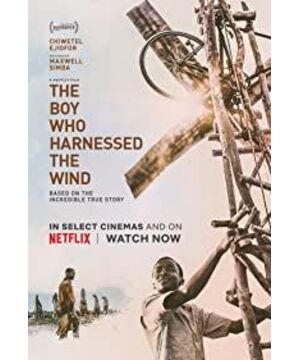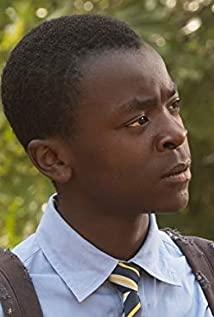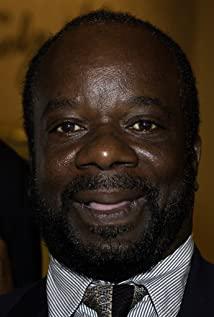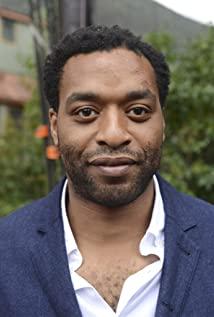This is a biographical film that tells the story of a little black boy who used his knowledge and crude tools to build a windmill to save the whole village from drought.
The story takes place in South Africa, and it is only natural for all blacks to appear.
The film is divided into five stages by the director.
The first stage: sowing
At the beginning of the story, Kankuba’s grandfather passed away, and we saw the masked dancer for the first time at the funeral.
Later, the film explained that the background of the story was the election of political figures, as well as the protests and revolutions of the civilian population against democracy.
In the subsequent meeting of the chiefs, we also learned that the tobacco company purchased trees from the villagers to use for curing tobacco leaves.
But the forest cannot resist floods, and the water in the soil cannot be retained.
The drought in the coming year has also planted the seeds
In my opinion, in the first stage, sowing not only metaphors the seeds that the villagers will eventually reap the benefits of destroying the environment for their own benefit, but also symbolizes the seeds of Kankuba's mechanical talents are sowed.
He shouted about democracy and asked the government to be sympathetic to the people. How concerned about his attitude toward the government?
The second stage: growth
The land began to dry up and the drought began to appear, and the villagers began to worry
But everyone has become accustomed to relying on others and begging for rain. The villagers rely on the chief, and the chief depends on the government. No one has ever thought about unity.
Kankuba found a water pump in the garbage dump and said that only all the batteries without electricity can be made into a useful battery. Here, the useless battery is a metaphor for the famine and helpless people, and if they unite, they can face the upcoming famine. On the contrary, a dish of scattered sand is useless.
The third stage: harvest
Previously, the so-called president’s beating of chiefs who requested the government’s help made people lose confidence in the government, and the father who always believed in the government could not believe his own eyes.
Kankuba’s father left in order to participate in the protest, but as a result the little food left in his family was also robbed, leaving only the mother and daughter and the empty granary.
The fourth stage: famine
People left one after another, and Kankuba’s father was still reclaiming the extremely dry land in the field.
Kankuba asked her sister to come to the DC generator on the teacher’s bicycle. The sister who did not want to leave exchanged the generator on the condition that she eloped. In the film, she only learned of her sister’s departure and from the parents. The small generator in front of the bed in my sister's bedroom
Can Kuba’s small windmill was successfully made. He begged his father in the field to make a big windmill for his bicycle, which he regarded as a treasure.
When his father repeatedly said that it was just a toy, Kankuba’s words "I went to school" made his father furious
Father’s refusal, there are no parts to build the windmill, and the death of the pet dog made the young Kankuba worse.
The fifth stage: wind
My mother's persuasion and his father's support, the whole village also came to help build the young Kankuba mouth that can bring water and rain to the whole village.
For them, they had to wait for death, and the windmill they had never heard of before became the only straw they could catch.
The father and son hugged each other in the outflow of water and wept with joy. Kankuba saved the whole village.
There was no word between the two, and the look in his father's eyes was not sure whether it was pride and comfort, or shame and repentance for what he had done before.
Seedlings grow, and the hope of survival also germinates in the hearts of the villagers
With the death of the old chief, the mask dancer appeared again, but this time without the leader.
Climbing up to my own windmill, I am about to leave the village to go to school. Although I am reluctant to give up, just as Kankuba’s father said, this windmill will not only send you out of here, but also leave you here forever, villagers. We think of you when we see this windmill.
An ordinary black boy who had no money to go to school secretly was expelled. With his talent and perseverance, he saved the whole village. He was blocked by countless people, but he never backed down.
Just like the last sentence in the film, my understanding of this is that all people are created equal, and you and I are both children of God. Everyone has the same opportunity to contact God, but in the end, it is only that. Few few people.
View more about The Boy Who Harnessed the Wind reviews











